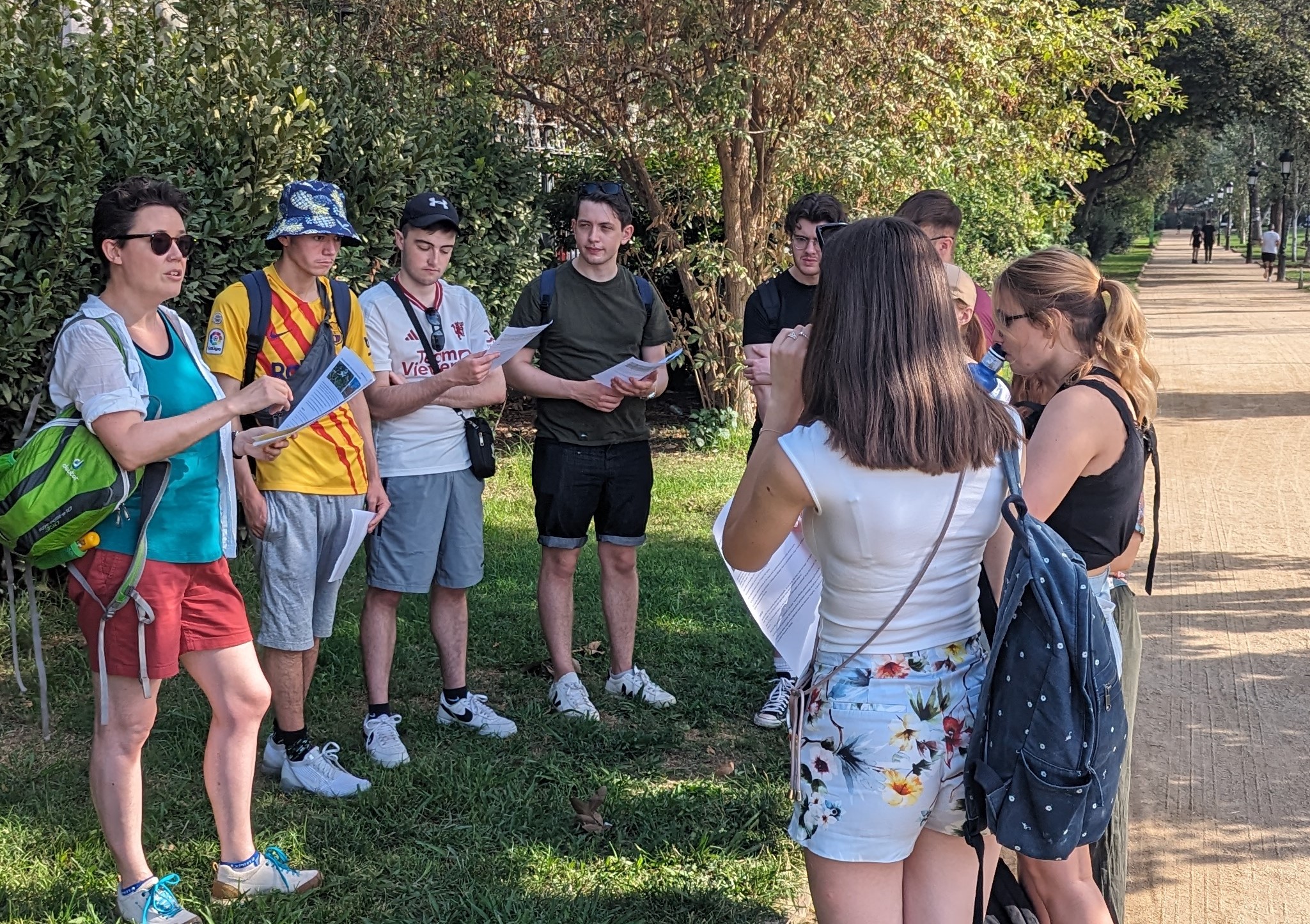Everyone is a Geographer!
Senior Lecturer in Human Geography and Deputy Head of Division, Rebecca Collins, talks about her journey to becoming a geographer and discusses how you can develop your interest in the world, even without a geography background.
.jpg)
I may teach Geography now but, believe it or not, I didn’t start out as a geographer. I was always very attuned to issues of social and environmental injustice in school, but I didn’t attach that to a particular subject. I also really, really liked maps (I still do), but I was interested in other things as well. When I reached sixth form and had to start making ‘Big Decisions’ about where to go and what to do next, it was hard to decide what to study at university.
I picked a course that allowed me to combine my interests in multiple fields – art, culture, place and politics. Several years later, it was the same set of interests that made me a geographer, albeit with quite a different spin. I became a geographer – at the age of 26 – because my interest in environmental issues had become the thing that I wanted to shape my professional future.
I had found myself working for an environmental education organisation and was doing some voluntary youth work for a local charity on the side. I became interested in how young people were being talked about by national and global organisations (like the United Nations) as ‘sustainability saviours’ – but I wanted to understand the reality behind these catchphrases. So off I went, back to university to study geography, this time as a postgraduate student.
Studying Geography and conducting research as a geographer allowed me to really appreciate how important the relationship between people and places is. I was able to understand why the way we feel about ‘place’ is important, and how encouraging connection with place is important in encouraging environmental care.
I learned about geographies I had never really thought about as geography before – from the social exclusion of indigenous peoples to the development of water infrastructure in Bolivia. Topics like these are typical of the themes we cover in the Geography degree at Chester.
As well as doing lots of thinking about the meaning of ‘place’, ‘space, ‘scale’, and ‘environment’, I also learned that we are all geographers. Every time we have to find our way somewhere new, every time we go on holiday, every time we buy a new item of clothing, we are all always doing and making and contributing to 21st century geography. As a Geography student at the University of Chester, you’ll find yourself making geographies of your own – through fieldwork, for example – as you develop your understanding of the issues and environments that you care about.

There is space in the study of Geography at university for you and your interests whether or not you have chosen to study Geography at A Level. If you’re interested in climate change, migration, natural hazards, global politics, consumer culture, the impact of digital technologies and AI on places, social inclusion, or how to create fairer and more sustainable futures, Geography at Chester would like to welcome you.
Discover more about our Geography degree so you can achieve more than you thought possible and build on your interests at the University of Chester.
If you have any specific questions about the course requirements, please email geog@chester.ac.uk.